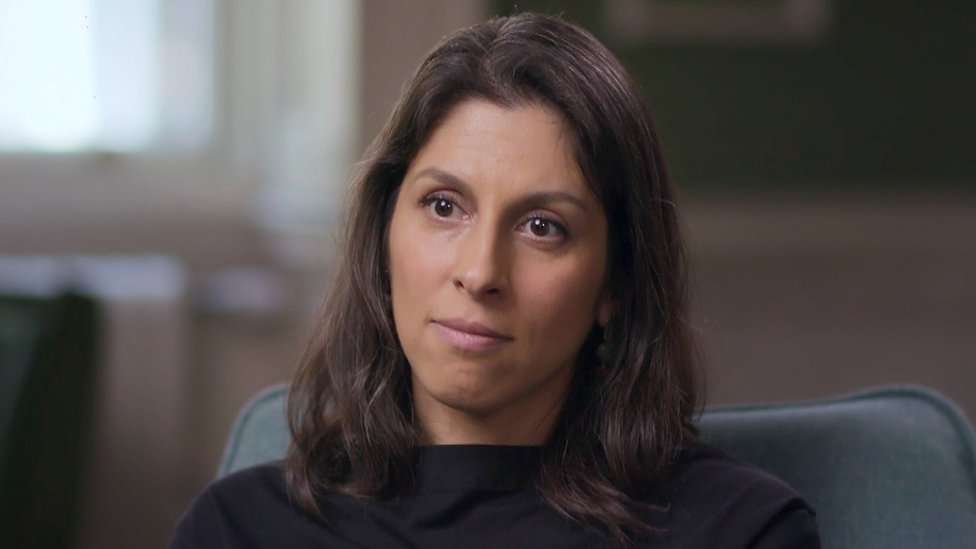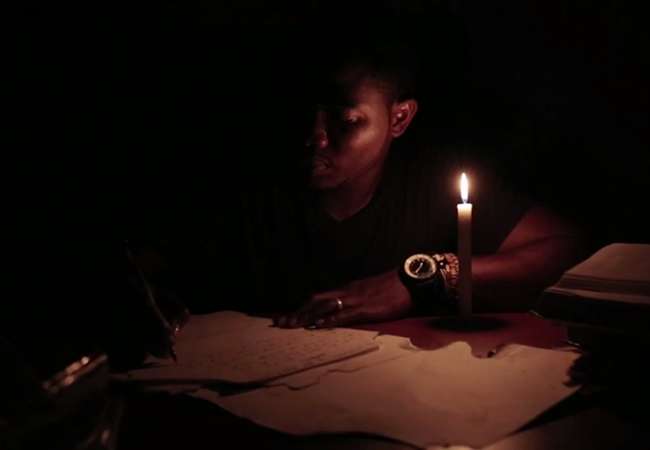Nazanin Zaghari-Ratcliffe has said Iran forced her to sign a last-minute false confession at the airport as a condition of her release.
She told the BBC a UK official was with her when she signed the statement “under duress” before the Iranian authorities would let her fly home.
Mrs Zaghari-Ratcliffe was released in March, six years after being arrested on spying charges.
She said Iran extracts false confessions as a propaganda tool.
Speaking to the BBC’s Emma Barnett for Woman’s Hour, Mrs Zaghari-Ratcliffe also questioned why the UK did not challenge Iran over forcing her to admit to crimes she did not commit as a condition of her release.
She said she was taken away by Iranian Revolutionary Guards without seeing her parents and “made to sign the forced confession at the airport in the presence of the British government”.
Mrs Zaghari-Ratcliffe said was told she would not be allowed to get on the plane back to the UK without signing the confession, adding that Iranian officials filmed the whole process.
The former political prisoner said she wanted to make sure people knew she had been forced to sign, to prevent the Iranian regime from exploiting her “dehumanising” confession.
“Why would I sign something? I have been trying very, very hard for the past six years to say I have not done it,” she said.
“All the false confessions that we have been exposed to, they have no value.
“They are just propaganda for the Iranian regime to show how scary they are and they can do whatever they want to do.”
‘Horrendous ordeal’
Mrs Zaghari-Ratcliffe was arrested in 2016 on spying charges while about to return home from visiting her parents in Iran with her then two-year-old daughter Gabriella.
The charity project manager was sentenced to five years for plotting to overthrow the Iranian government, and then sentenced to another year for propaganda against Iran in 2021.
She always denied the charges and said she was on holiday visiting her family.
Mrs Zaghari-Ratcliffe was released from jail in 2020 and spent another year with an ankle tag under house arrest at her parents’ home in the Iranian capital city Tehran.
After that she had some freedom to move around the city, but was unable to leave the country because she did not have her passport.
Her release, enabling her to return to the UK along with fellow British-Iranian national Anoosheh Ashoori, came after the UK paid a £400m debt owed to Iran from the 1970s, although both governments have said the two issues should not be linked.
Mrs Zaghari-Ratcliffe said: “They told me that they have been given the money. So what is the point of making me sign a piece of paper which is incorrect? It’s a false confession.”
She said Iranian authorities enjoyed showing the “desperation” of people in detention as a tool for their own propaganda.
Mrs Zaghari-Ratcliffe also said she did not believe she would be freed until she was on the plane home.
One last game played by Iran
There’s a good reason why the families of hostages held in Iran say they won’t breathe easily until their relative is actually on a plane, and out of Iranian airspace.
The big fear is that the deal might fall through – as it did for the London-born environmentalist Morad Tahbaz.
Under the agreement that brought Nazanin Zaghari-Ratcliffe and Anoosheh Ashoori home, he was supposed to have been allowed out of jail to serve his sentence under house arrest. Instead, he was back in his prison cell within 48 hours.
For Nazanin, after years of being toyed with by the Iranian regime, it wasn’t a big surprise that it had one last game to play against her.
Being filmed as she signed her confession was not only a final humiliation – it’s another card up its sleeve that Iran could use in the future.
Nazanin had no choice but to sign, if she wanted to go home.
And British officials – having finally got Nazanin to the airport – will, presumably, have been desperate not to do anything that might scupper the deal at the very last moment.
The Foreign Office declined to comment on Mrs Zaghari-Ratcliffe’s confession but said the Iranian authorities put her through “a horrendous ordeal, right up to the moment she left the country”.
A spokesperson said the government had worked “tirelessly to end her unfair detention”, adding: “But it was always in Iran’s gift to release Nazanin and to allow her to return to the family.
“We urge the government of Iran to end its practice of unfairly detaining British and other foreign nationals, and we will continue to work with international partners to that end.”
Speaking in March shortly after being reunited with her daughter and husband Richard, Mrs Zaghari-Ratcliffe questioned how it had taken so long to secure her release, arguing it should have been arranged years earlier.
Earlier this month, she met Prime Minister Boris Johnson at Downing Street, after being critical of his handling of her case.
In 2017, when the PM was foreign secretary in Theresa May’s government, he wrongly said Mrs Zaghari-Ratcliffe had been training journalists in Iran.
Mrs Zaghari-Ratcliffe asked Mr Johnson why it took so long to get her home and told him his “mistake” over her reasons for being in Iran had left a “lasting impact”.
Mr Johnson has previously apologised in parliament for the remarks, telling MPs he acknowledged “the words I used were open to being misinterpreted”.
However, he did not explicitly apologise to Mrs Zaghari-Ratcliffe at their recent meeting.
Last week, former foreign secretary Jeremy Hunt said global co-operation was needed to “stamp out” states taking people hostage and accused the UK of “diplomatic failure” over the debt.
Source: BBC


















































